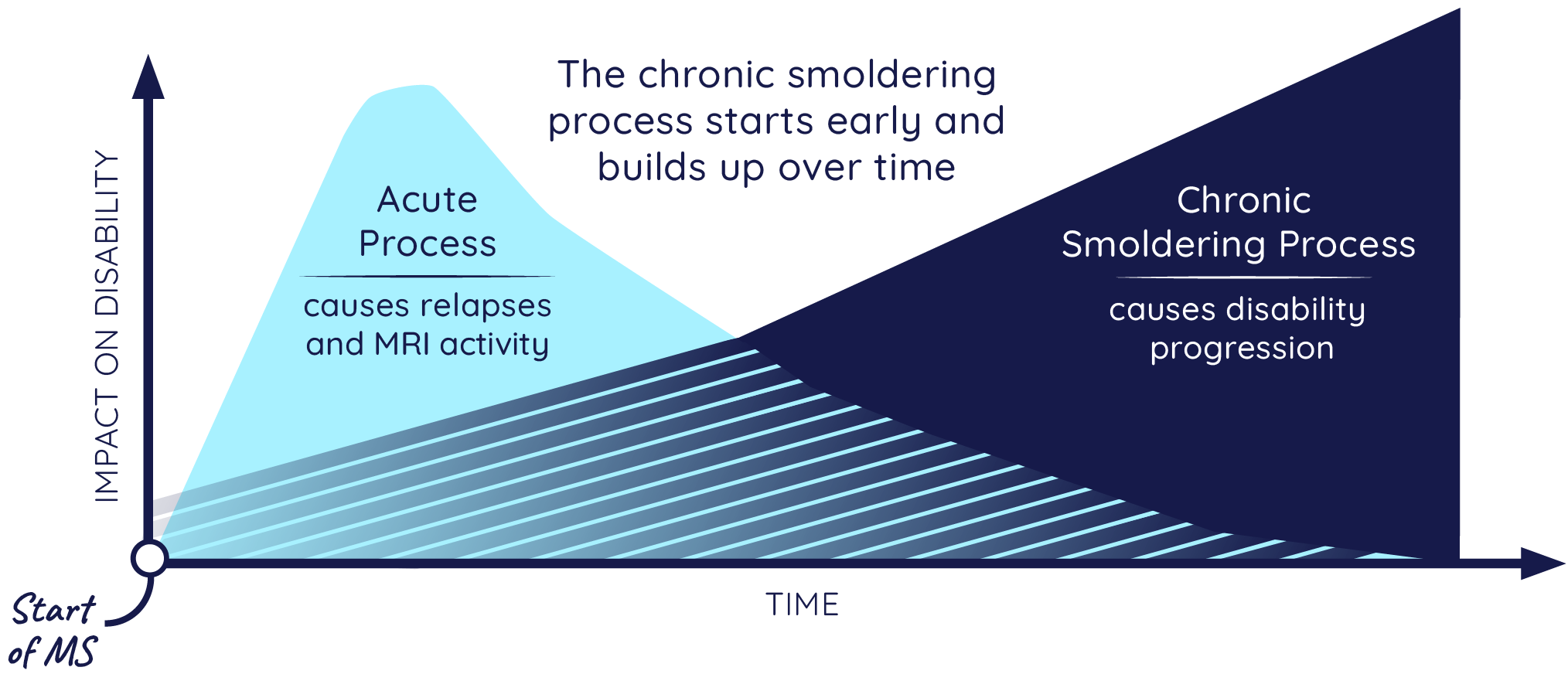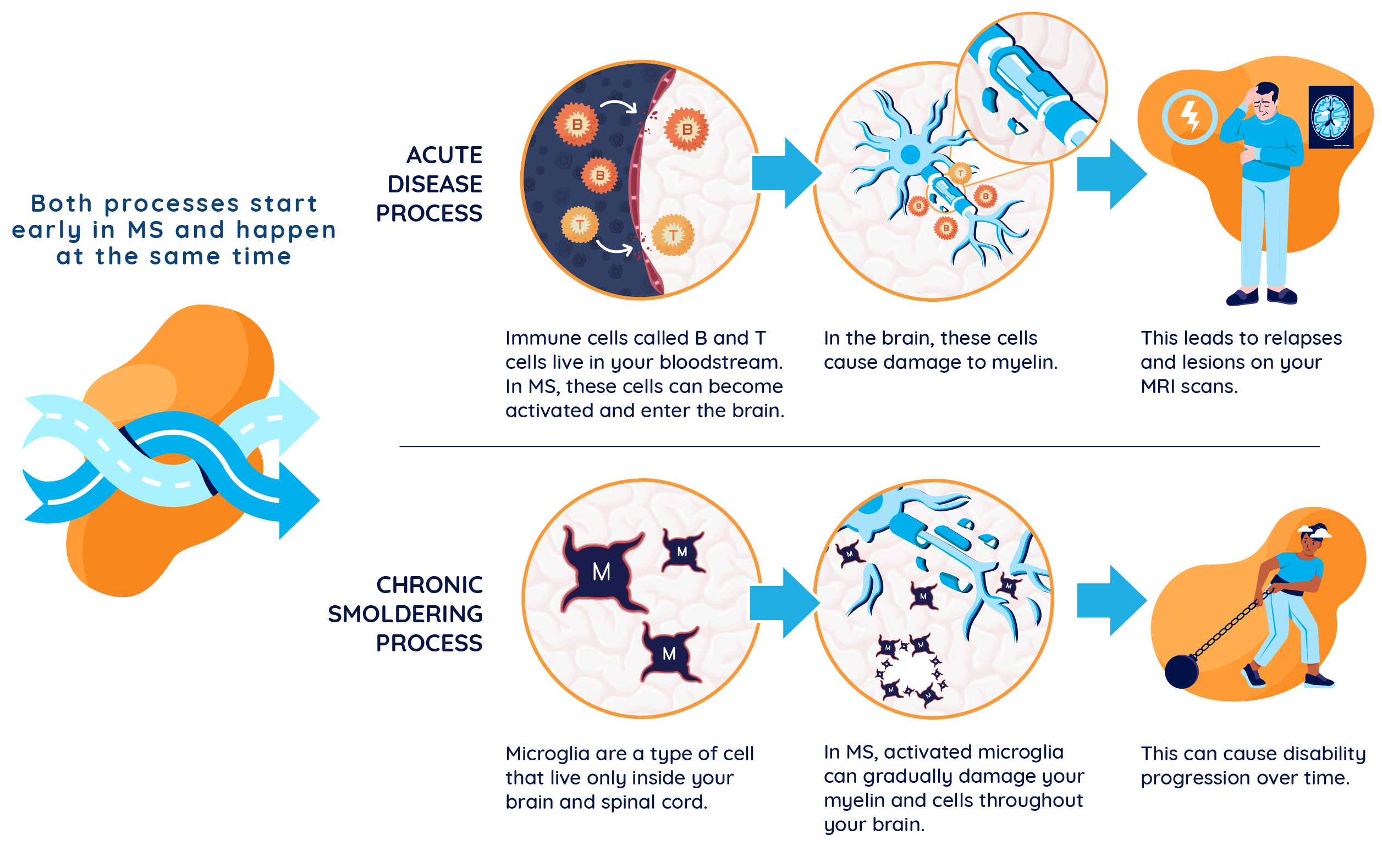Important discovery in MS
We have a better understanding of why MS can get worse without recent relapses or MRI activity. This new understanding of the chronic smoldering process and how it causes disability progression is giving people living with MS new reasons to hope.
Understanding MS: the 2 processes
The acute processA process in MS that causes damage quickly, leading to relapses and MRI activity. has been well understood for years—it primarily causes relapsesAn event during which MS symptoms temporarily get worse or new symptoms appear, followed by a remission during which symptoms usually improve. Relapses are associated with the acute process. Also known as: flare-ups, attacks. and MRI activityAreas of inflammation and/or damage in the central nervous system that healthcare providers can see on magnetic resonance imaging, also known as an MRI.. The evolving science of MS is around understanding how the chronic smoldering processA process that happens only in the brain and is ongoing from the start of MS. This process slowly causes damage that results in disability progression. Also known as: compartmentalized inflammation, chronic progressive process, smoldering MS, smoldering neuroinflammation. leads to disability progressionA gradual increase or worsening of physical symptoms, cognitive symptoms, and/or fatigue over time.. Both the chronic smoldering process and the acute process can be happening at the same time but can affect you in different ways:
Watch the video to learn about the science behind the 2 processes:
How do the 2 processes work?
The chronic smoldering process can gradually cause damage to the brain and spinal cord, which leads to disability progression. This process begins before the first symptoms are noticed and causes disability to slowly build up over time.
The new focus of MS research
There's an enzymeA protein that triggers a chemical reaction in your body. For example, an enzyme may activate B cells and microglia. called Bruton’s Tyrosine Kinase (BTK)An enzyme that activates both B cells and microglia. In people with MS, this activation can lead to damage. that plays an important role in both processes:
Acute process:
B cellsTypes of cells that can be found in the bloodstream and work as part of the immune system. During the acute process of MS, these cells enter the brain and cause damage to myelin. are activated by BTK to cause damage, resulting in relapses and MRI activity
Chronic smoldering process:
MicrogliaCells that are a part of the immune system and are only found in the brain and spinal cord. During the chronic smoldering process in MS, activated microglia can cause damage to myelin, brain cells, and other areas of the brain. are activated by BTK, which may lead to disability progression
Management of today & possibilities of tomorrow
Today's MS therapies have come a long way in how they treat the acute process to control relapses and MRI activity. But many people with MS still experience disability progression. That means there's more to address when it comes to the chronic smoldering process.
Today's therapies are unable to do both of the things that are believed to address the chronic smoldering process:
-
Get inside the brain where the process happens
-
Make a meaningful impact on microglia, a cell involved in the process
The new understanding of the chronic smoldering process has created a new era of MS research. Addressing both the acute and the chronic smoldering processes could significantly impact the future of MS.




